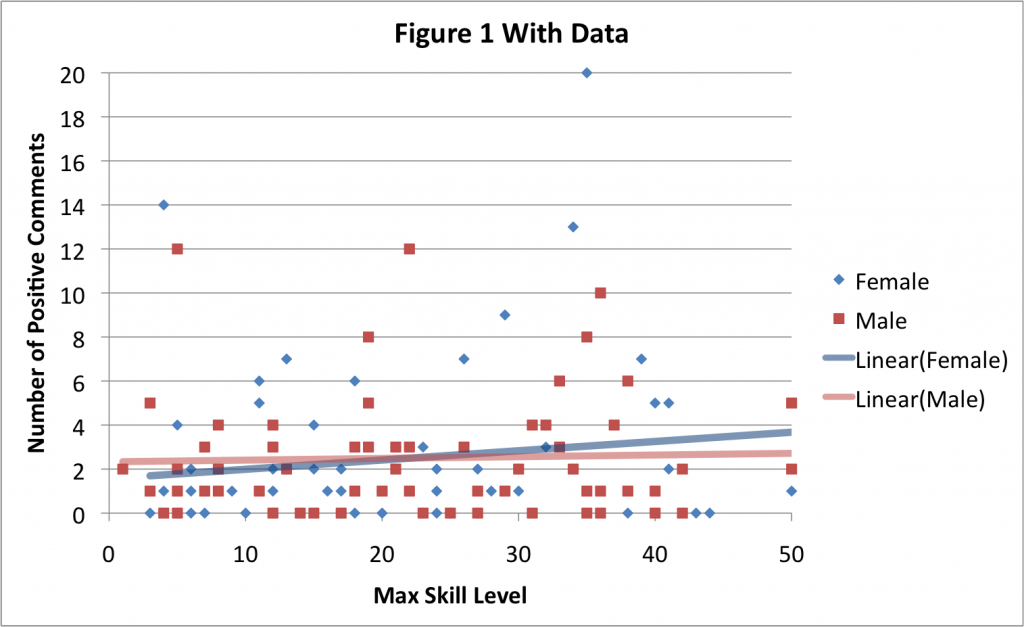Support more videos like this at patreon.com/rebecca!
Sorta transcript:
As a woman on the Internet with opinions who has been the target of harassment online for the past 5 years or so, I’ve had ample opportunity to study the people who send me typo-ridden emails and tweets threatening to murder or rape me. And each time I’ve dug into the background of the people, usually men, who do this, I inevitably discover that they’re enormous losers.
This, of course, is an anecdote. It’s just my experience, and of course it’s colored by my own background and biases. Maybe if someone were able to examine every person who attempts to harass me, we’d see that some of them don’t live with their parents, or haven’t been convicted of sexual assault, or do have rich, fulfilling lives.
No one has offered to do that study just yet, but luckily two researchers have just published a study in PLOS One revealing their finding that yes, men who harass women online are, in the most literal sense possible, giant losers.
The problem is that whenever I see a study that so perfectly fits with what I want to be true, I know that I’m going to have to work a little harder to find its flaws. Because that’s what a good skeptic does: criticize the things you love.
This study looked specifically at gamers who play Halo 3, a first-person shooter for XBox 360 that offers a player versus player minigame in which up to 8 players can battle against one another online in two teams of 4.
The researchers played this game 163 times, which they note is quite a time investment. Excuse me while I try to find sympathy for that, considering how many other scientists are currently on Day 472 of watching spores grow. And I don’t mean in the video game, Spore.
For each game, the researchers played neutral prerecorded messages that were spoken by either a man or a woman. These were things like “I like this map” at the start of the game, or “good game everyone” at the end. “Die in a fire, you fucking camper” wasn’t included, despite seeming perfectly neutral to most people on XBox.
They recorded video of each game, had outside parties create transcripts, and then had “coders” who didn’t know the purpose of the study comb through everything said on voice chat and code it as either a positive statement, like “good job,” a negative statement, like “die in a fire,” I guess, or a neutral statement, like “AFK mom brought down pizza rolls.”
Then they logged the statistics for each player who spoke on mic, including their gender and their KDR, or Kill/Death ratio — how many times they killed another player compared to how many times they died.
The researchers say that men who were bad at the game were more likely to say negative things to the experimental player that used the female voice, and the worse the men were the worse they treated the female character. When the experimental character was “male,” the bad players actually treated him better the worse they got, acting more subservient towards him.
The chart that is printed in the paper and reproduced in outlets like the Washington Post is pretty damning — the solid line shows compliments men give to the experimental player when its female, showing more compliments as the men improve. The dotted line is when the experimental player is male, showing practically no effect regardless of men’s skill.
The problem with this chart is that it doesn’t actually show data. It’s a statistical model based on the data. My friend, astrophysicist Katie Mack, plotted the actual data, and that is a good deal messier.
As you can see, there are a lot of outliers. When you see all the data laid out, it becomes a lot less clear that lower level players were less complimentary, and a lot more depends upon what statistical analysis you use to figure out whether or not you’ve found anything of significance.
And even the massaged and refined models aren’t as cut and dry as the conclusion makes it appear. This chart shows that the more times a player died, the more they insulted both the male and female experimental player, with the female getting a bit more negativity at first but then the male getting much more at the far end of the “loser” spectrum.
One other issue with this study is that they didn’t get enough data to evaluate the use of sexualized insults. They found that 13% of players uttered hostile sexist statements, but that still wasn’t enough to show any significant correlations.
So are men who harass women in online games losers? Absolutely, without a doubt, yes. But are they all necessarily bad at video games? No. To figure that out, we’re going to need a much more in-depth study with a lot more data. I volunteer as tribute.
